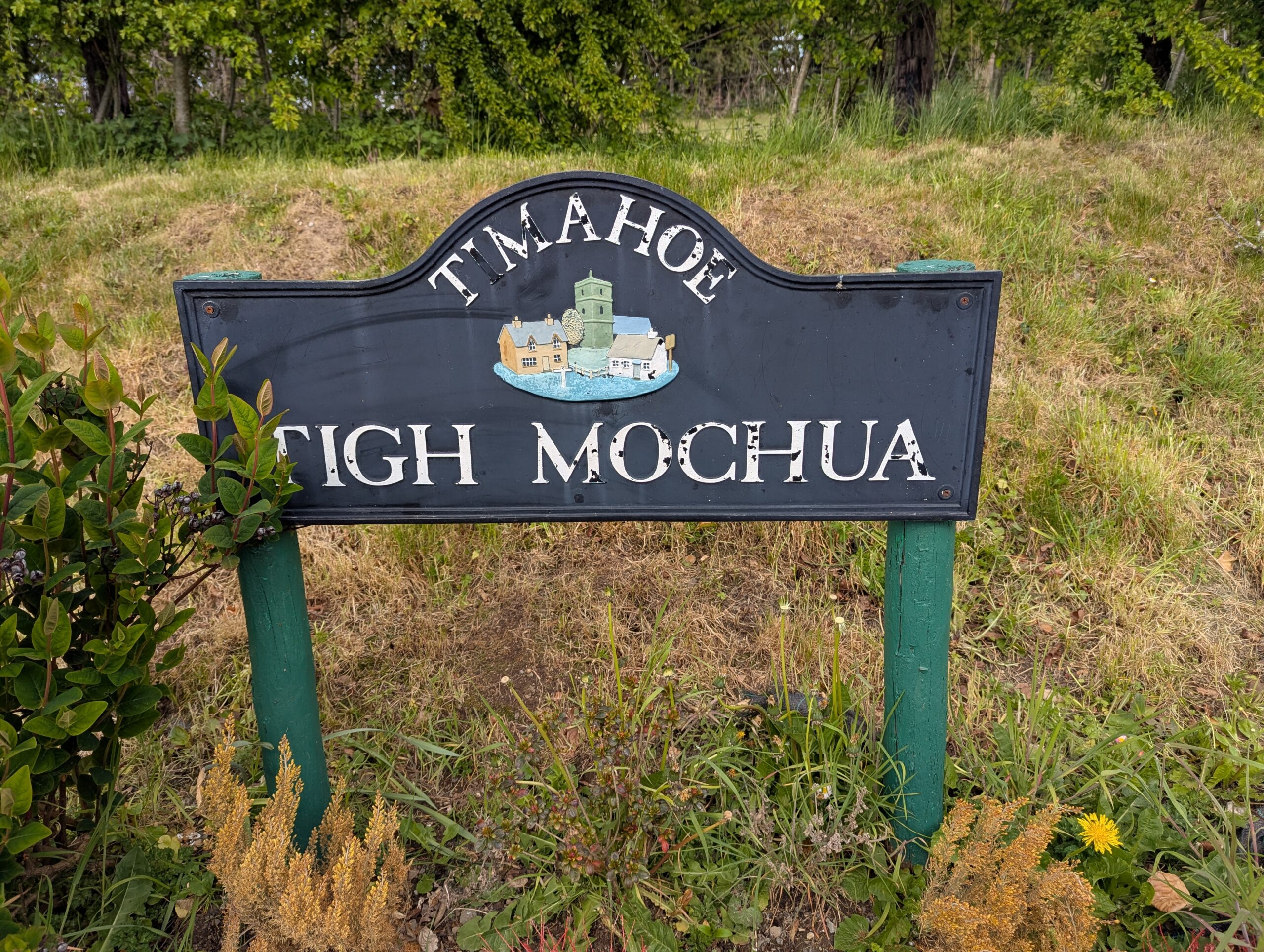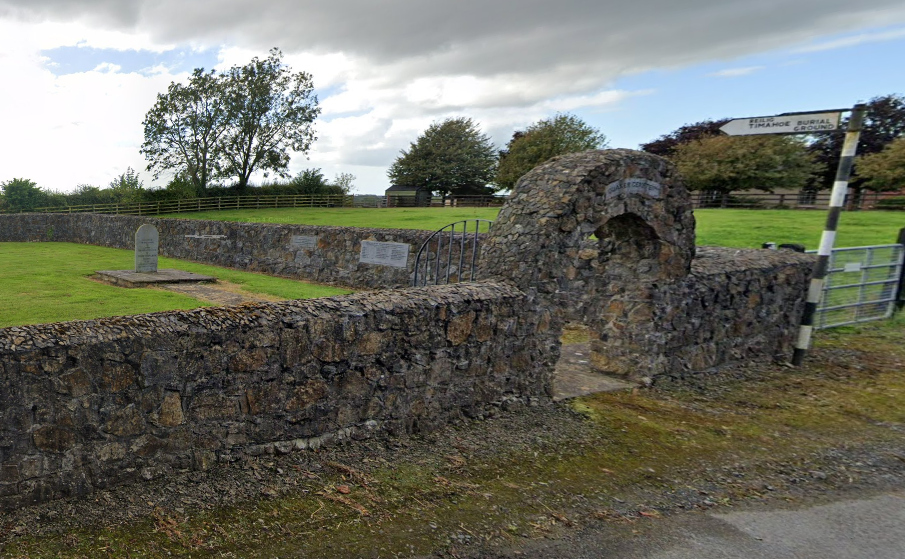
Walter Kelly in South Carolina
I did however eventually find some first hand records of Walter Kelly! In the excerpt from The Kelly Family that I had access to, it mentioned that there were records of royal land grants to Walter Kelly in South Carolina:
In 1754 Walter Kelly received a Royal Grant for 350 acres in Craven County, South Carolina (Roll ST 61, Vol.6, P.190).
I decided to try to track down these records, and I found them on the South Carolina Department of Archives and History Website! The first record I found was of the royal grant and the diagram of the tract of land laid out by Samuel Wyly:
Robert Milhouse, who died in 1755, seems to have been the initial leader of this group. Samuel Wyly, a very gifted young Irishman, then filled the gap caused by Milhouse's death.
This fact, coupled with Samuel Wyly also signing many similar land tracts for other Quaker community members is the strongest tie I’ve been able to find between Walter Kelly, Timothy Kelly, and Samuel Kelly:
The last document to note is the one where Walter Kelly and his wife Elizabeth Kelly lease and then release their land to John Pain in 1759:
John Pain is also a named listed on the letter to the Quaker community in North Carolina from Timahoe from 1751, so it is possible this might have been the same person! It would also be another confirmation that Walter Kelly was a member of the Quaker community. These documents also confirm the telling of events from The Kelly Family up to this point.
Walter Kelly in Virginia
The next record that is available to be found was the original account of Walter Kelly’s move to Kanawha County in Virginia, and eventual death during the Indian attack in 1774 in History of Kanawha County:
Pioneers and Their Homes on Upper Kanawha also mentions this detail as to why Walter Kelly didn’t return to safety with his family:
Warning from Fort Donnally that Indians were coming had been received in time for his wife and children to reach the fort, but Kelly, driven to seek this lonely spot because of some dark page in his not-too-distant past, feared to be seen in the settlement, and chose to remain behind.
This is pure speculation on my part, but could it be that Walter Kelly didn’t want to return to the settlement because of a falling out with the Quaker community, similar to how Samuel Kelly was outcast from the community for not giving up his slaves? As pacifist abolitionists, this passage always stood out to me:
The first intimation which Field had of their approach, was the discharge of several guns and the fall of Kelly. He then ran briskly towards the house to get possession of a gun, but recollecting that it was unloaded, he changed his course, and sprang into a corn-field, which screened him from the observation of the Indians; who, supposing that he had taken shelter in the cabin, rushed immediately into it. Here they found the Scotchman and the negro woman, the latter of whom they killed; and making a prisoner of the young man, returned and scalped Kelly.
Was the gun Walter Kelly’s, and if so, what was a Quaker doing with a gun? Additionally, if the black woman at his cabin was a slave, that would have gone against Quaker principles at that time as well. It appears as though if Walter Kelly was ever a Quaker, he wasn’t much of an adherent once he moved to Virginia.
In James Kelly’s pension application (Walter Kelly’s son), he also confirms several details such as previously residing in South Carolina as well as Walter Kelly initially residing at Pittsylvania and later moving to Greenbrier:
On this day personally appeared before John W. Cook Judge of said court presiding James Kelly a resident of Maury County in the State of Tennessee aged about Seventy five years who having been first duly sworn according to law doth on his oath make the following Declaration in order to obtain the benefit of the act of Congress passed June 7th 1832. That he entered the service of the United States and served as hereinafter stated (to wit) He was born in Pittsylvania County in the State of Virginia he thinks in the year 1760 from his best recollection – he had a record of his age in a Bible of his father’s but the Bible he lost more than twenty years ago in the State of South Carolina so that he has no written record of his age, nor has he had one for a long time – His father with Declarant lived in said Pittsylvania county until a short time before the commencement of the Revolutionary War, when his father moved to Greenbrier County, Virginia. Declarant was with his father in said Greenbrier county but a short time until his father was killed by the …ians [page torn; probably “Indians”] his father having before that sent his family (Declarant among the rest) to Arbuccle’s Fort [sic: Arbuckle’s Fort, erected by Cap. William Arbuckle on Muddy Creek in Greenbrier County in 1774] but remaining himself at home, where he was killed by the indians – after the death of Declarants father Declarant with his mother & family moved back to Pittsylvania county and shortly after the commencement of the war his mother & family moved to South Carolina Curshaw [sic: Kershaw] county or District Camden District. Declarant was living in said Curshaw county when he went into service.
From James Kelly onwards, it is relatively straightforward to trace my lineage back to him:
So while I still don’t have definitive answers about Walter Kelly, I feel like I have confirmed to my satisfaction that he did have some association with the Timahoe Quakers, and was likely some sort of familial relation to them. Without more documentation from his life in Ireland, or other confirming documents like a passenger list of the ship that transported them to South Carolina, it will be difficult to confirm any more than that.



















